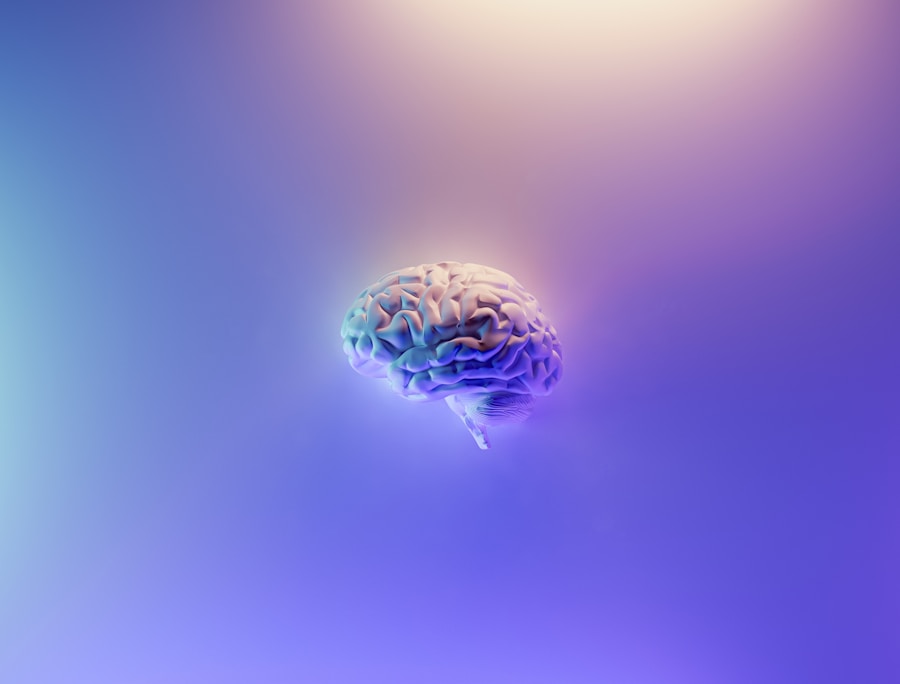ESCAPING THE NARCISSIST
Are you trapped in a toxic relationship? It's time to reclaim your life and find healing. ESCAPING THE NARCISSIST: HOW TO HEAL AND RECOVER FROM NARCISSISTIC ABUSE IN RELATIONSHIPS is your guide to breaking free and starting your journey towards recovery.
Don't let the pain control you any longer. Take the first step today and discover the strategies to overcome emotional abuse and rebuild your life. You deserve happiness and peace.
Start Your Healing Journey TodayNarcissism is a personality trait characterized by a grandiose sense of self-importance, a constant need for admiration, and a lack of empathy for others. It is often associated with a sense of entitlement and a tendency to exploit others for personal gain. While narcissism is not inherently pathological, it can become problematic when it reaches extreme levels and interferes with an individual’s ability to function in society. Brain damage, on the other hand, refers to any injury or trauma to the brain that disrupts its normal functioning. This can occur as a result of physical injury, stroke, tumor, or degenerative diseases such as Alzheimer’s. The relationship between narcissism and brain damage is an area of growing interest in the field of psychology and neuroscience, as researchers seek to understand how changes in the brain may contribute to the development and expression of narcissistic traits.
The Link Between Narcissism and Brain Damage: Findings from Research
Recent research has provided compelling evidence of a link between narcissism and brain damage. A study published in the Journal of Personality Disorders found that individuals with narcissistic personality disorder (NPD) showed structural abnormalities in the prefrontal cortex, a region of the brain involved in self-regulation and social behavior. This suggests that disruptions in the prefrontal cortex may contribute to the development of narcissistic traits, such as a lack of empathy and impulse control. Another study, published in the journal Social Cognitive and Affective Neuroscience, used functional magnetic resonance imaging (fMRI) to examine brain activity in individuals with high levels of narcissism. The researchers found that narcissistic traits were associated with increased activity in the medial prefrontal cortex, a region involved in self-referential processing and social cognition. These findings suggest that narcissism may be linked to alterations in brain structure and function, providing important insights into the neurological basis of this personality trait.
Understanding the Impact of Brain Damage on Narcissistic Traits
Brain damage can have a profound impact on an individual’s personality and behavior, including their level of narcissism. For example, damage to the prefrontal cortex, as seen in individuals with NPD, can lead to impairments in emotional regulation and decision-making, which are core features of narcissistic personality traits. Additionally, damage to the amygdala, a brain region involved in processing emotions, may contribute to a lack of empathy and emotional detachment often seen in individuals with high levels of narcissism. Furthermore, damage to the insula, a region involved in self-awareness and social cognition, may lead to a distorted sense of self-importance and an inability to recognize the needs and feelings of others. Understanding how specific areas of the brain are affected by damage can provide valuable insights into the neurological mechanisms underlying narcissistic traits.
Exploring the Neurological Mechanisms Behind Narcissistic Behavior
The neurological mechanisms behind narcissistic behavior are complex and multifaceted. One key aspect is the role of neurotransmitters, such as dopamine and serotonin, in modulating reward processing and emotional regulation. Dysfunction in these systems may contribute to the heightened sense of self-importance and need for admiration seen in individuals with narcissistic traits. Additionally, alterations in the connectivity between different brain regions, such as the prefrontal cortex and the limbic system, may disrupt the ability to regulate emotions and empathize with others. Furthermore, genetic factors may also play a role in predisposing individuals to develop narcissistic traits, as certain genetic variations have been linked to differences in brain structure and function. By exploring these neurological mechanisms, researchers can gain a deeper understanding of how brain damage may contribute to the development and expression of narcissistic behavior.
Implications for Treatment and Intervention
The link between narcissism and brain damage has important implications for treatment and intervention. For individuals with NPD or other forms of pathological narcissism, understanding the neurological basis of their condition can help inform more targeted and effective interventions. For example, cognitive-behavioral therapy (CBT) techniques that focus on emotion regulation and empathy training may be particularly beneficial for individuals with NPD who have experienced brain damage affecting these functions. Additionally, pharmacological interventions targeting specific neurotransmitter systems implicated in narcissistic behavior may also hold promise for alleviating symptoms. Furthermore, raising awareness among healthcare professionals about the neurological underpinnings of narcissism can help improve diagnostic accuracy and treatment planning for individuals with co-occurring brain damage and narcissistic traits.
Future Directions for Research on Narcissism and Brain Damage
As our understanding of the link between narcissism and brain damage continues to evolve, there are several important avenues for future research. One key area is the exploration of individual differences in susceptibility to developing narcissistic traits following brain damage. By identifying specific genetic and neurobiological factors that confer vulnerability to pathological narcissism, researchers can develop more personalized approaches to prevention and intervention. Additionally, longitudinal studies tracking changes in narcissistic behavior following brain injury or disease can provide valuable insights into the dynamic nature of these traits and their underlying neurological mechanisms. Furthermore, advances in neuroimaging techniques, such as diffusion tensor imaging (DTI) and resting-state fMRI, can help elucidate the structural and functional connectivity alterations associated with narcissistic behavior. By addressing these research priorities, we can deepen our understanding of the complex interplay between brain damage and narcissism.
Insights and Considerations for Individuals and Healthcare Professionals
In conclusion, the link between narcissism and brain damage represents a fascinating area of inquiry with important implications for individuals and healthcare professionals alike. Research findings have provided compelling evidence of structural and functional alterations in the brains of individuals with high levels of narcissism, shedding light on the neurological mechanisms underlying this personality trait. Understanding the impact of brain damage on narcissistic traits can inform more targeted interventions for individuals with NPD or other forms of pathological narcissism. Furthermore, future research directions hold promise for advancing our understanding of individual differences in susceptibility to developing narcissistic traits following brain injury or disease. By integrating insights from neuroscience and psychology, we can continue to unravel the complex interplay between brain damage and narcissism, ultimately improving our ability to support individuals affected by these conditions.


